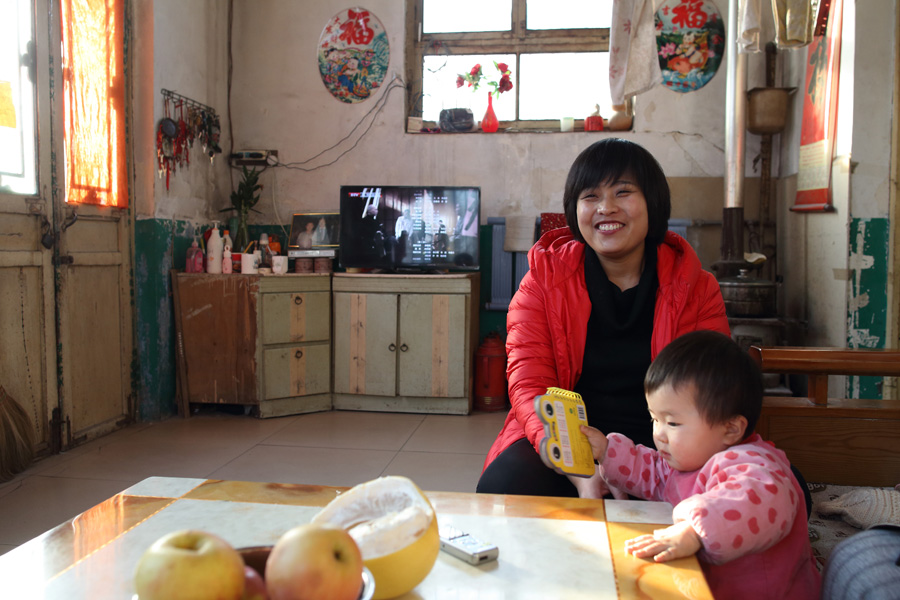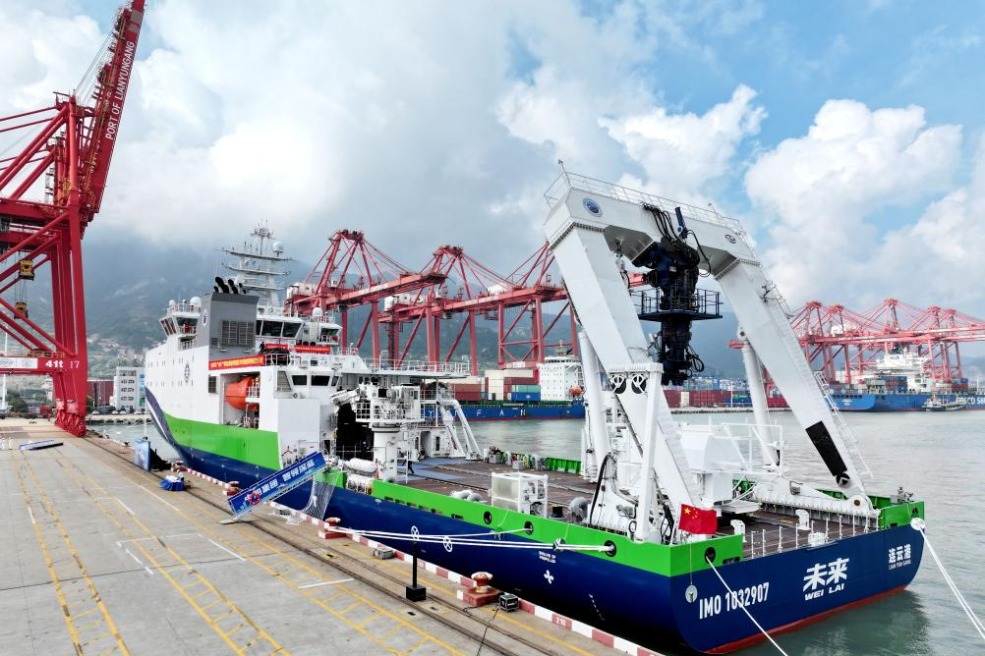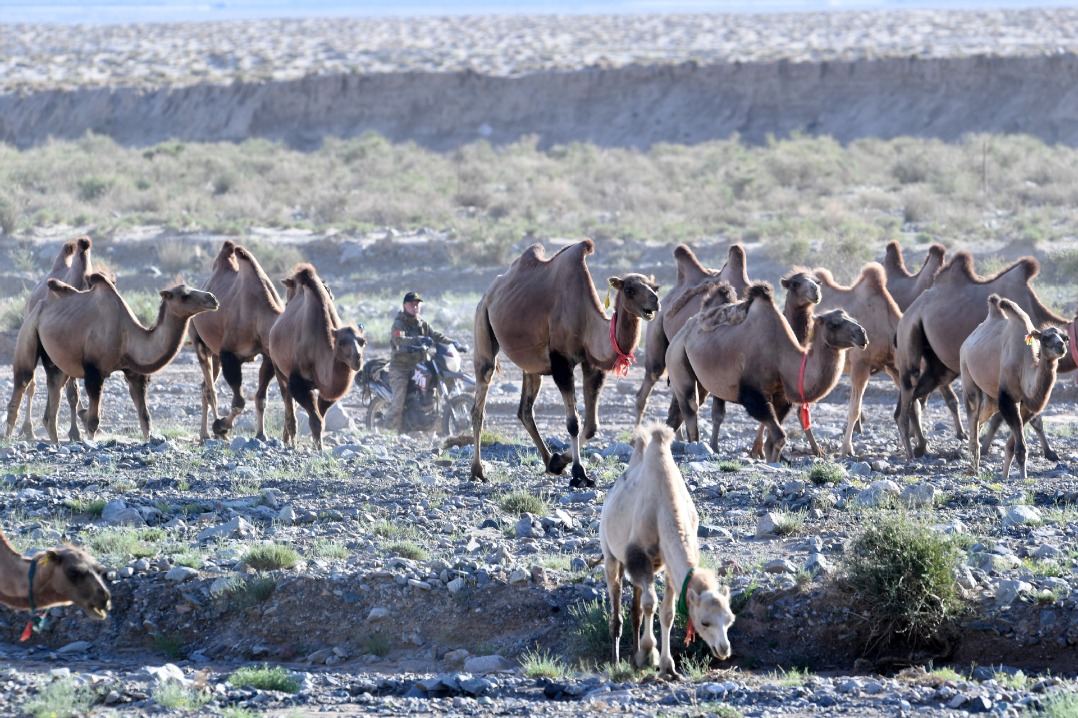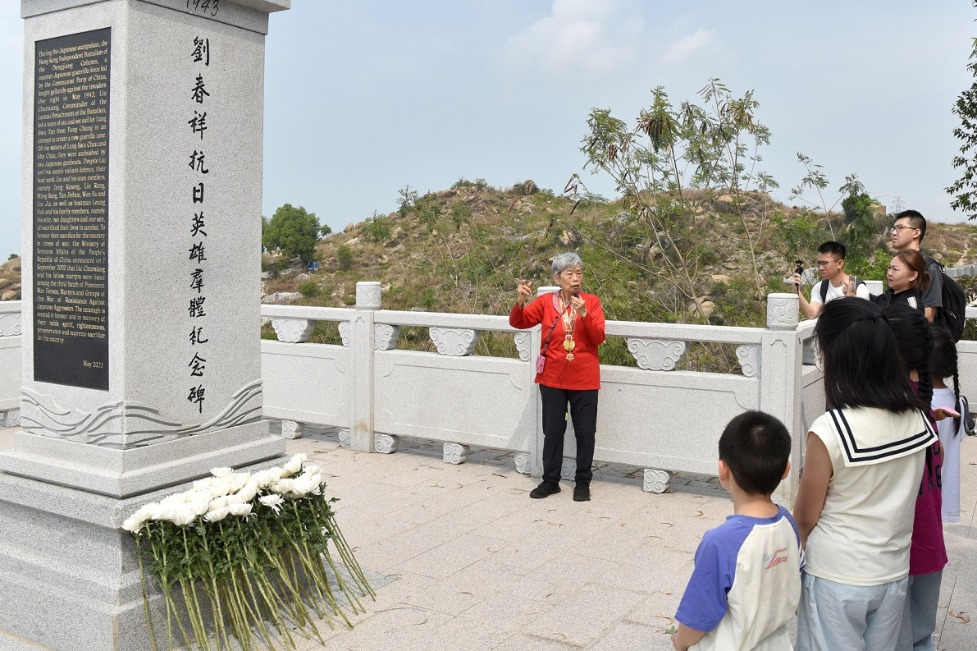Foreign experience provides determination to change lives


Yuan Xiangsheng has been the head of Nanzhanglou village in East China's Shandong province for 42 years. "I am probably one of the few village heads who made business trips to foreign countries in the 1980s," he said.
Starting in 1989, all the cultivable land in Nanzhanglou was redeployed in a systematic way and leveled to facilitate mechanization, assisted by the Hanns Seidel Foundation from Germany, which works to promote civic society.
Out-of-season vegetable planting, livestock rearing and agricultural byproduct processing were introduced to the village during the project, raising farmers' average annual incomes.
The Sino-German cooperative project expanded the horizons of people in Nanzhanglou.
In the 1990s, the first group of eight villagers traveled to work in Argentina as part of a cooperative project. "The trip was also the first such attempt in Qingzhou, a city with a population of about 940,000." Yuan said.
As a village that enjoys no advantages in terms of natural resources or transportation convenience, Yuan said the labor force is Nanzhanglou's only real resource. In the past three decades, many villagers have worked overseas.
"As China's power has grown, people are finding more opportunities to work, and wages are higher than ever before. In recent years, nearly 80 percent of the workers who went overseas have returned. Their experiences overseas brought vitality and new ways of thinking to the development of the village," Yuan said.
Unlike most women in the village, Du Yongzhu wears light makeup. "That is a habit from my experience of working in Japan. Women there always wear makeup, even at home," the 30-year-old said with a gentle smile.
Du only received a high school education. In 2011, she paid 50,000 yuan ($7,940) to an agency that could arrange work overseas and found a job as an automobile production worker in Japan. She spent four months training in language, work skills and Japanese etiquette, but she made more than 200,000 yuan in three years.
What makes her life different from before is not simply the money, but the determination and encouragement she gained while working overseas which made her determined to make a better life for herself when she returned to China.
"I gained good professional ethics and professionalism in Japan. The people there work conscientiously and rigorously. Also, they pay strong attention to hygiene and environmental protection. I think the same spirit could be practiced in China, which will definitely make my hometown a better place to live," she said.
After reuniting with her husband and child in 2014, Du refurbished their one-story brick house with the money she had made in Japan and expanded it into a 30-room family inn. In 2016, she had her second child.
"I hope this small business will bring us a stable and more prosperous life. Then my children will be able to receive a good education and have a chance to go overseas, not as migrant workers, but to study. They will have open minds and better lives," she said.
Yuan Yonghong and her husband worked in a restaurant in France for three years before returning to China in 2015 to care for their parents. Now, they run a store in Nanzhanglou, earning about 80,000 yuan to 100,000 yuan a year.
"The villagers are getting richer now. Many local families can afford a can of baby milk formula priced at more than 200 yuan. This growing consumer power needs to be fed by a sufficient supply of commodities. We chose to return, both to be with our families and because there are more chances at home now," she said.
- Zhejiang leads in innovation, IP development
- Lotus sanctuary dazzles at wetland park in Chongqing
- Nearly 5,700 residents relocated amid heavy rain in Jizhou, Tianjin
- China to offer nationwide childcare subsidies
- China sees better air, water quality in H1
- Heavy-ion accelerator integrating into cancer treatment in China





































